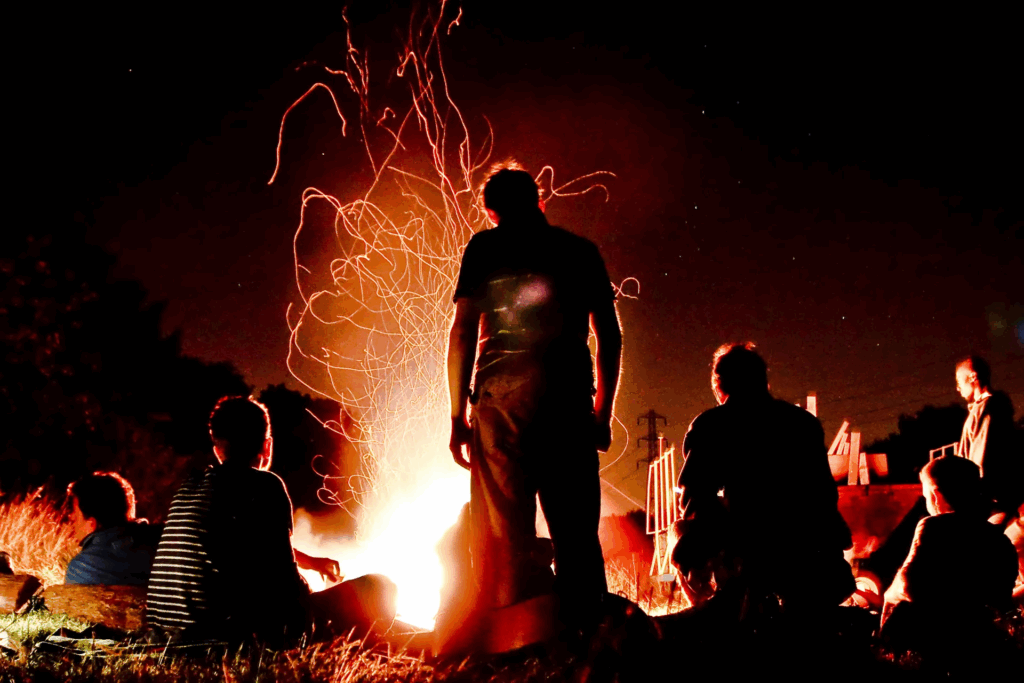In his introduction to The Supernatural Omnibus, an anthology of supernatural stories by various authors, Montague Summers claims “Ghost stories told by one who believes in and is assured of the reality of apparitions and hauntings… will be found to have a sap and savour that the narrative of the writer who is using the supernatural as a mere circumstance to garnish his fiction must inevitable lack and cannot attain.” In other words, the good Mr. Summers argues that in order to write good supernatural fiction, the author in question must believe in the supernatural, or his work will lack the required “oomph.”
Conversely, the horror author H. P. Lovecraft, in his article “Supernatural Horror in Literature,” feels that the genius of fantasy authors such as Algernon Blackwood is sometimes marred by “the flatness of benignant supernaturalisms, and a too free use of the trade jargon of modern ‘occultism.’” Blackwood was indeed an occultist, a member of the Hermetic Order of the Golden Dawn, a secret society that included such luminaries as fellow horror writer Arthur Machen, poet W. B. Yeats, and self-proclaimed prophet Aleister Crowley. Lovecraft goes further to argue that someone who believes in the supernatural has difficulties writing about it in fiction because he is liable to construct supernatural effects based on what the author believes them to be true, and not necessarily what would create the best emotional effect in the story. Furthermore, to an occultist, the supernatural is often perceived as mundane, a normal part of human experience. Though Lovecraft counts such authors as Machen and Blackwood amongst his favourites, he still perceives their spiritual beliefs as flaws in their art.
So, Mr. Summers argues that a fantasy author should be a believer, Mr. Lovecraft argues that he should not. Before we go any further, it must be pointed out that Mr. Summers was a Catholic clergyman who claimed to believe in literal vampires, werewolves, and witches. Mr. Lovecraft, on the other hand, was an atheist of the most virulent sort who denied any possibility of the existence of God or other higher powers and who scoffed at anyone who did believe. So it is likely that neither of the two were quite unbiased about the subject.
Who is correct? As in many things, they are both correct, up to a point. As with all writers of all fiction, a fantasy writer needs to be believe in his world, his characters. Even if they are not literally real, the ideas and emotions behind them need to have a reality behind them. A person need not literally believe in ghosts to write a ghost story, but he must believe in the truth of what the ghosts mean to them: do they embody the coldness of death in contrast with the vibrancy of life? Are they symbols of loss or revenge? Perhaps a hope or love that transcends the grave. Without the author’s belief in the fantastical as a potent symbol, the story falls flat.
As for Lovecraft’s criticisms about authors who are theists – well, certainly some fantasy books have suffered because the author forced his own beliefs upon the world in ways that were not thematically appropriate, but there are numerous supernatural tales by theists that superbly blend together images of pure fancy with things that they actually believe. C. S. Lewis didn’t believe in literal Greek gods anymore than J. R. R. Tolkien believed in elves and ring-wraiths. That didn’t stop them from putting those elements into their fiction; they entwined together their spirituality and their imagination to create powerful stories that would have been much less effective without one of those two elements.
Fantasy fiction, at its best, is the fiction of metaphors and symbols that present ideas in a mythic and emotionally charged fashion. Anyone can explore their beliefs about the universe through stories of the supernatural, though a person’s beliefs certainly affect the result. H. P. Lovecraft created a horror universe in which God is a mindless amoeba at the centre of all reality, the figurehead of a pantheon of cruel, inhuman deities, and a potent metaphor for an atheist’s belief in how little the universe cares about humans and how wrong existing religions are about everything. Likewise, Michael Moorcock’s Eternal Champion series revolves around numerous reincarnations of an immortal warrior dedicated to freeing the universe from the yoke of the gods of Law and Chaos so that humanity can forge its own glorious destiny. Though these two cosmologies are very different from each other, both are powerful, engaging, and ultimately atheistic. Contrast them with the theological science-fantasy of Madeleine L’Engle or C. S. Lewis, in which resplendent angels dance in the glory of a universe that is permeated with the resplendent joy and the love that the Divine Creator has towards all Creation. Or of course there is the occult fiction of Grant Morrison, Alan Moore, or the aforementioned Blackwood or Machen, which draws upon their own very personal, idiosyncratic beliefs. And then there’s Neil Gaiman, a man fascinated by all mythologies, but unable to devote himself to any one faith; and who’s writing explores figures from a multitude of faiths: Christian angels rub shoulders with Norse gods and dream kings, and all are treated with equal respect. The universe of each of these stories is shaped by the author’s beliefs.
The existential horror of H. P. Lovecraft, the transcendent joy of C. S. Lewis, the questing spirit of Neil Gaiman. All of these and more have a place within supernatural fiction. All of them have power.
-Bevan Thomas

